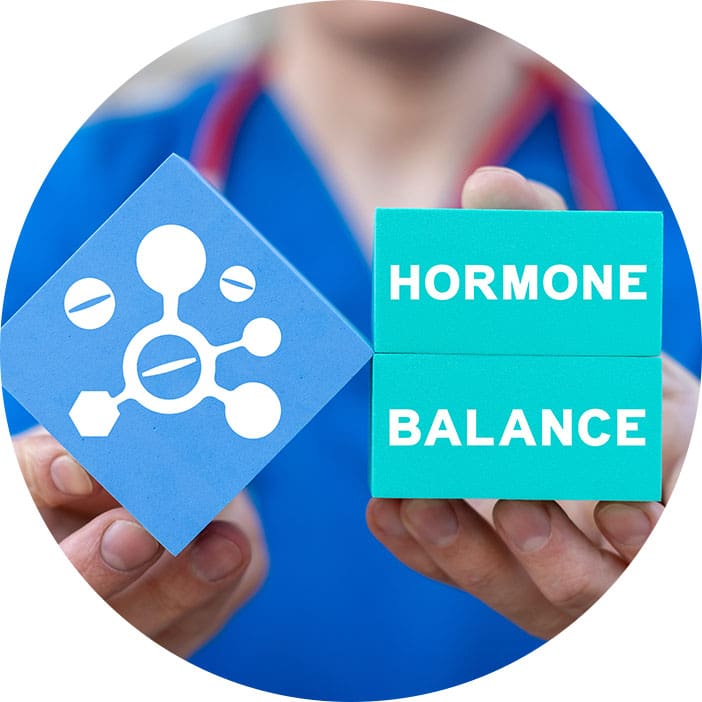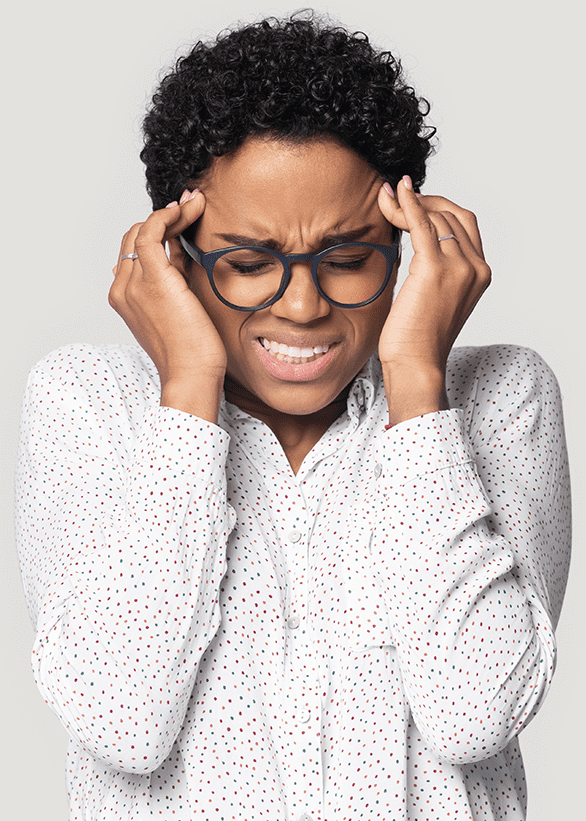Home > Women’s Therapies > Hormone Balancing
Your hormones play a significant role in your overall health. They act as messengers within your system and control each of your bodily functions, including your reproductive system, immune system, and metabolic system. Hormones can even affect the healing of brain trauma.
Hormones that may become unbalanced include:

Hormone imbalance is often due to aging. As women reach their later reproductive years and eventually enter menopause around age 50, their bodies produce less progesterone and estrogen. Men also produce less testosterone as they grow older.
In addition to aging, hormone imbalance can also be due to:
Both men and women can experience hormonal imbalance during their lives.

Hormone imbalance can cause a wide range of symptoms, a few of which include:
It’s also common to experience changes in libido when your hormones are imbalanced.
